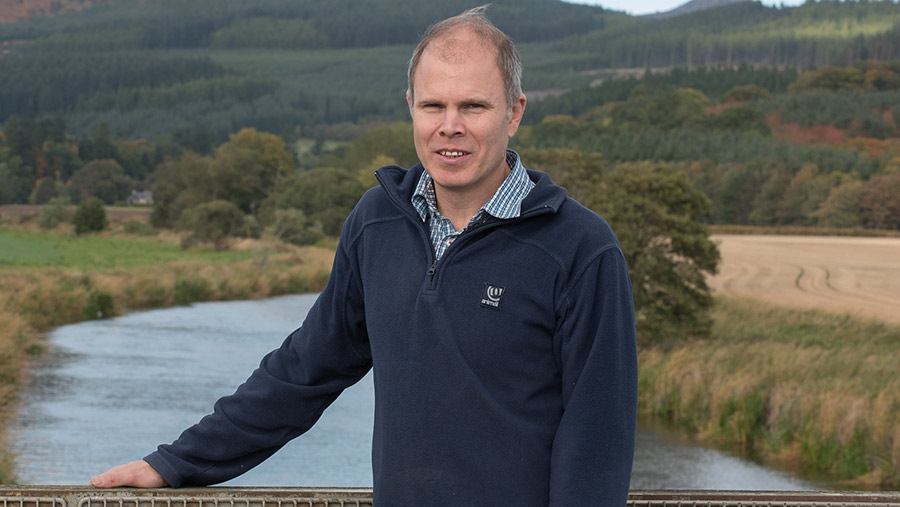Farmer Focus: No fertiliser spread and SNP implosion
 © Angus Findlay
© Angus Findlay The dry, sunny spell in February is now a distant memory. March has been either -8C and sunny or 8C and wet – both unsuitable for applying fertiliser.
The forecast continues to be unsettled. It looks like it will be a late start to spring, with no fertiliser yet applied and little prospect of drilling until April.
However, we did manage to get most of the drain repairs done and are now caught up on the ploughing.
See also: ‘Farming matters’ NFU Scotland tells new SNP leader
As the Ukraine war enters its second year, grain prices are trading below pre-war levels, but with expensive fertiliser in the shed and labour and machinery prices at elevated levels, margins for 2023 crops are looking slim.
Politics is centre stage again, with the sudden resignation of first minister Nicola Sturgeon resulting in an implosion within the SNP.
Most of the senior party figures say the SNP is a complete mess. It seems the choice is between more of the same, or a fresh, but inexperienced new leader.
Whatever the outcome, hopefully there will be a realisation in both the government and population that the running of the country and getting the basic services right is the key role of government and should be the priority over dividing the nation on constitutional matters.
Whether this results in any change to the as-yet-unfinished agricultural policy remains to be seen, but hopefully we will see something of a reset, with more thought given to the needs of rural communities.
A return to previous promises of investment in infrastructure in rural areas, and an ambition to grow food production and exports would be welcome.
On the livestock side of the business, cattle prices are faring better. Stores were recently sold at the price fat cattle were only a few years ago.
While watching the sale online, I was struck by the number of cattle sold at almost a year older, but not much heavier.
At a time when there is pressure to reduce environmental impacts and a suggestion within the Scottish government that cow numbers should be reduced, it would appear that carbon footprints could be shrunk through more efficient growth of young cattle.


